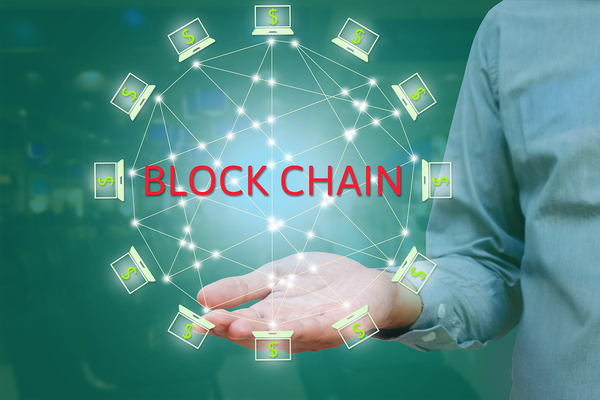Blockchain is a way to move money and other goods and services digitally. Although the word has been associated by technology news with cryptocurrencies such as Bitcoin, that association is fading as blockchain becomes increasingly used for business applications.

Blockchain is a method of digitally keeping records of transactions.
So what is blockchain? Essentially, it’s a peer-to-peer digital ledger. Like ledgers of yore, transactions of various types can be entered as a value, either outgoing or incoming. Any given transaction generates a block of data. Hence the name “blockchain.”
Advantages: Streamlined and Quick
Proponents think the advantages of blockchain are a streamlined method of exchange and record-keeping. There is no third-party involvement as there currently is with bank transactions. Blockchain transactions can be done instantaneously. They are secured via encryption.
While some 900 cryptocurrencies now exist, it should be noted that cryptocurrencies are not synonymous with “currencies.” While some transactions are money, others are not. Blockchains could be created on theoretical cords of wood if both buyer and seller agreed that was the value they wanted. They can also represent a function, such as the number of conversions on web content.
As a business strategy, blockchain improves business processes by speeding up and securing transactions, while likely lowering costs.
Some enthusiasts think the blockchain economy will eventually grow larger than the internet economy, as soon as a standard is in common use and a critical mass uses it.
The streamlined nature and speed are reasons why the widespread adoption of blockchain is thought to have a likely big effect on banks. Currently, financial institutions take several days to settle transactions.
Other uses for blockchain might be in healthcare, where a number of doctors and other healthcare personnel could access a patient’s secure information. In the automotive arena, blockchain could allow multiple people to buy shares in a self-driving car and be used to track those shares.
Some proponents think it could be used for voting. It can be both more convenient to vote digitally, and the returns would come in quicker.
Concerns Persist
Despite rosy predictions for blockchain technology, though, some areas of concern remain.
One is regulatory. While financial institutions and consumers might benefit from speedier transactions, the regulatory picture vis-à-vis bank transactions both domestically and internationally is not clear and is complicated by the regulations of multiple countries.
Another is implementation. Blockchain is still not widely used, let alone widely understood. If glitches in either operations or privacy occur, it could tarnish blockchain’s image.
Security is also a concern. While blockchain is an encrypted technology, it is a fact that encryption is subject to hacking. Particularly in the case of financial transactions, health care transactions, and voting, security is paramount. In fact, lack of complete electronic security is one of the reasons why online voting is not more widespread.
More data may be needed to ensure that blockchain is totally secure.
Is blockchain the coming thing in technology? It is likely to be used more and more in the future, but concerns remain about the regulatory, implementation, and security picture.
